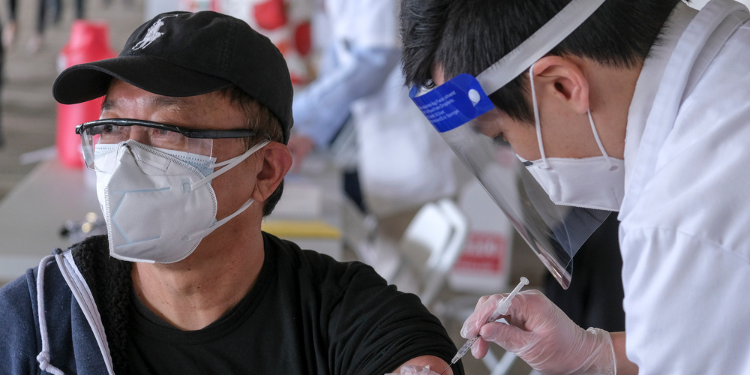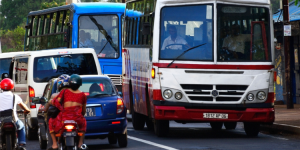
As millions of US citizens are taking their booster dose at home, some American expats are looking for their first vaccine against the coronavirus abroad. Unfortunately, many countries still need vaccines or put expats at the end of the line.
Michael DeSombre, a former US ambassador in Thailand, travelled with his wife and three children to their house in the US to get vaccinated. But, he acknowledged that not all American expatriates have the money to travel back to the US for taking the vaccine. Besides, as new COVID-19 variants fear the world, expats might have to stay for several weeks to get both shots and pay a quarantine in a hotel if their country requires it when they return. Thailand, like other countries, has vowed to vaccinate its citizens before giving shots to foreigners, no matter their risk factors or age.
According to State Department figures, an estimated 9 million Americans live outside the United States. Unlike expatriates from most other countries, they remain subject to US taxation, and because of that, there is a controversial debate around the vaccination of US expats. They plead US to deliver COVID-19 vaccines. A Twitter user from the States shared on his page that he lost a US expat friend for not having the vaccine jabs on time:
"I would like to give a shout-out to an expat friend of mine, Gary Moorehouse. Gary was 66 years old and died yesterday morning, about a week after receiving his second vaccine shot. He had taken the vaccine so that he could travel back to the US to see family. He will be missed", says the tweet.
The White House announced in June that it would distribute an initial 25 million vaccines across a “wide range of countries” in Latin America and the Caribbean, South and Southeast Asia and Africa, and the Palestinian territories. However, expats would have to wait on governments programs and organizations, as they are unlikely to be considered as a priority in a foreign country. For instance, Indonesia has received donated doses of Pfizer vaccines from the United States but generally excluded foreign residents from getting those shots. Therefore, some American expats still feel left behind by the US government providing vaccines to a country instead of focusing on sending them to American embassies abroad.
Waiting for solutions
US expats claim that the US military could drop off vaccine shipments at US embassies in other countries. A survey conducted by Democrats Abroad Thailand found that 98 per cent of 1,220 Americans in the country said they wanted a US-provided and approved vaccine.
The Biden administration back in July announced plans to allocate 55 million vaccine doses through the World Health Organization's COVAX program, without any requirements for recipient countries to vaccinate American citizens living there. The US donation included about 16 million doses for at least 18 Asian countries, including India and Thailand. The US also previously donated 25 million doses overseas and committed to send 500 million Pfizer-BioNTech doses between August and the first half of 2022.
Evan Prodromou is a US expat from San Francisco, living in Montreal, Quebec, Canada. He is fully vaccinated with two doses of AstraZeneca as part of the public health program in Quebec. His wife and two kids (13 and 16) also have two doses. Although in Canada, the vaccination process for US expats was quicker than in Asian countries, he also faced the timing issue. “The only problem I had was time. My age group (45-55) didn't start to get vaccinated until mid-April 2021, a few weeks or months after my friends and family in the US". So although he managed to have his jabs, he was surprised to see his friends in Africa, South America and Europe getting their first jabs in the summer or even the autumn of 2021.
US government response
The White House has insisted that it has no particular responsibility to vaccinate Americans abroad, citing precedent that the US government doesn't provide private health care to citizens living overseas. State Department officials also don't want to have international disputes over vaccine priorities and local policies, considering many countries are struggling to secure enough doses to immunize their own citizens.
The US government has urged expats to return home for vaccinations, saying it is for their safety and citing the ample supply of shots in this country. But Americans abroad said it's not that simple, citing pandemic travel restrictions, often considerable financial costs and health risks. Some US citizens believe that encouraging Americans to travel home isn't practical during the pandemic and noted that peer nations like France have taken steps to inoculate their citizens abroad.
For Evan, one possibility for solving this kind of problem would be to provide health services as vaccination for Americans abroad from consulates and embassies. “For the more than 5 million living abroad who pay US taxes, it would be great to see some of those public programs available to us, too.” The US shared AstraZeneca shots with Canada and Mexico in March 2021, so there's a good chance that Evan's shot in Quebec originally came from the US supply. “I think it's a great idea for the US to share doses with other countries who need it. First, because it alleviates suffering for people overseas. But also, because COVID-19 is an infectious disease that spreads from population to population; the more people who have COVID-19 abroad, the more likely it is that we'll have a bigger spread in the US", he comments.



















